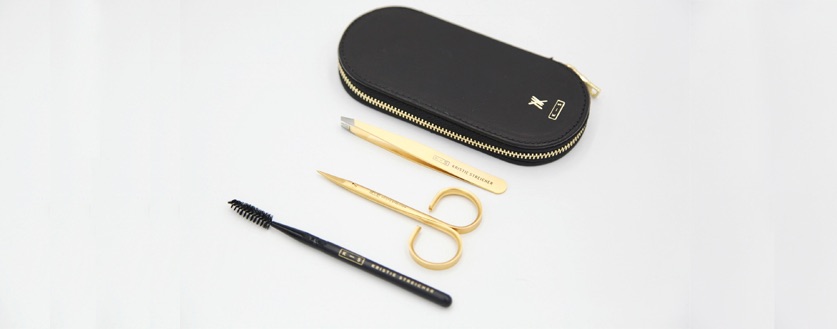WWW Podcast Interviews Music Stars VanJess and Brow Guru Kristie Streicher
Welcome to our new podcast, Who What Wear With Hillary Kerr. Think of it as your direct line to the designers, stylists, beauty experts, editors, and tastemakers who are shaping the fashion and beauty world. Subscribe to Who What Wear With Hillary Kerr on Apple Podcasts and Spotify.
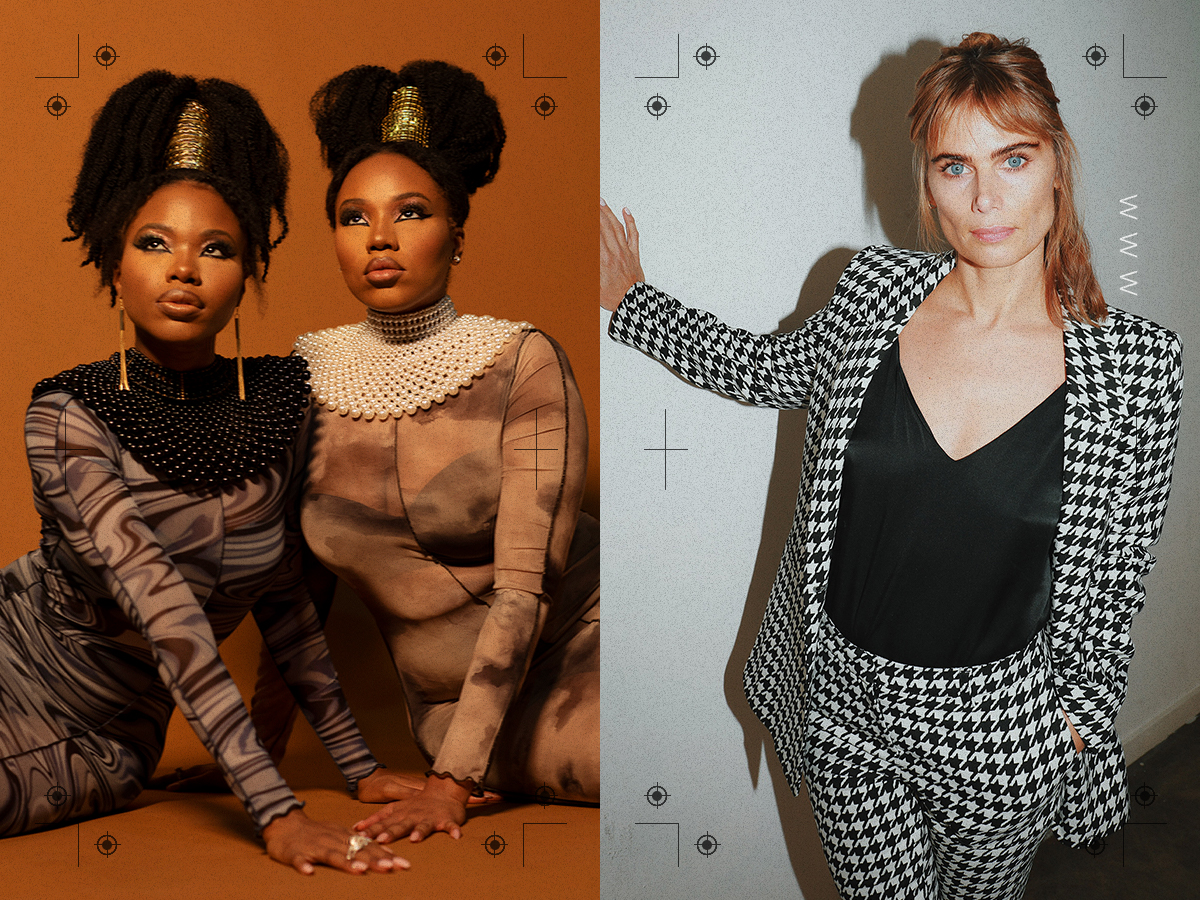
In this week's episode of Who What Wear With Hillary Kerr, our co-founder spoke with artists from our annual Ones to Watch music portfolio and a beauty legend.
The dynamic sisters that make up the VanJess duo, Ivana Nwokike and Jessica Nwokike, are the music industry's latest changemakers redefining contemporary R&B. They have introduced a new, modern take to the genre that embodies some of the greatest artists of the ’90s, like TLC and Aaliyah, while creating a distinctive style. In 2018, the sisters self-released their debut album, Silk Canvas, which was proven to be a definitive R&B statement, ultimately deeming VanJess as ones to watch. They spoke to Kerr about how they invested in themselves to create their first album; how the pandemic affected the adjustment period of creating their new EP, Homegrown; and the biggest lessons that they have learned from the industry.
Our second guest is an absolute beauty guru. Kristie Streicher is a Los Angeles–based eyebrow artist and co-owner of Striiike, a beauty and creative space in Beverly Hills. Her signature Feathered Brow technique has garnered attention from the fashion world and has shifted the way women and beauty insiders view their brows. She shares her story of how the technique started, her unique brow ethos, and trends in the eyebrow industry.
Continue reading to get a sneak peek at Kerr's interviews with VanJess and Kristie Streicher. To hear the full interviews, check out the episode on Apple Podcasts or Spotify.
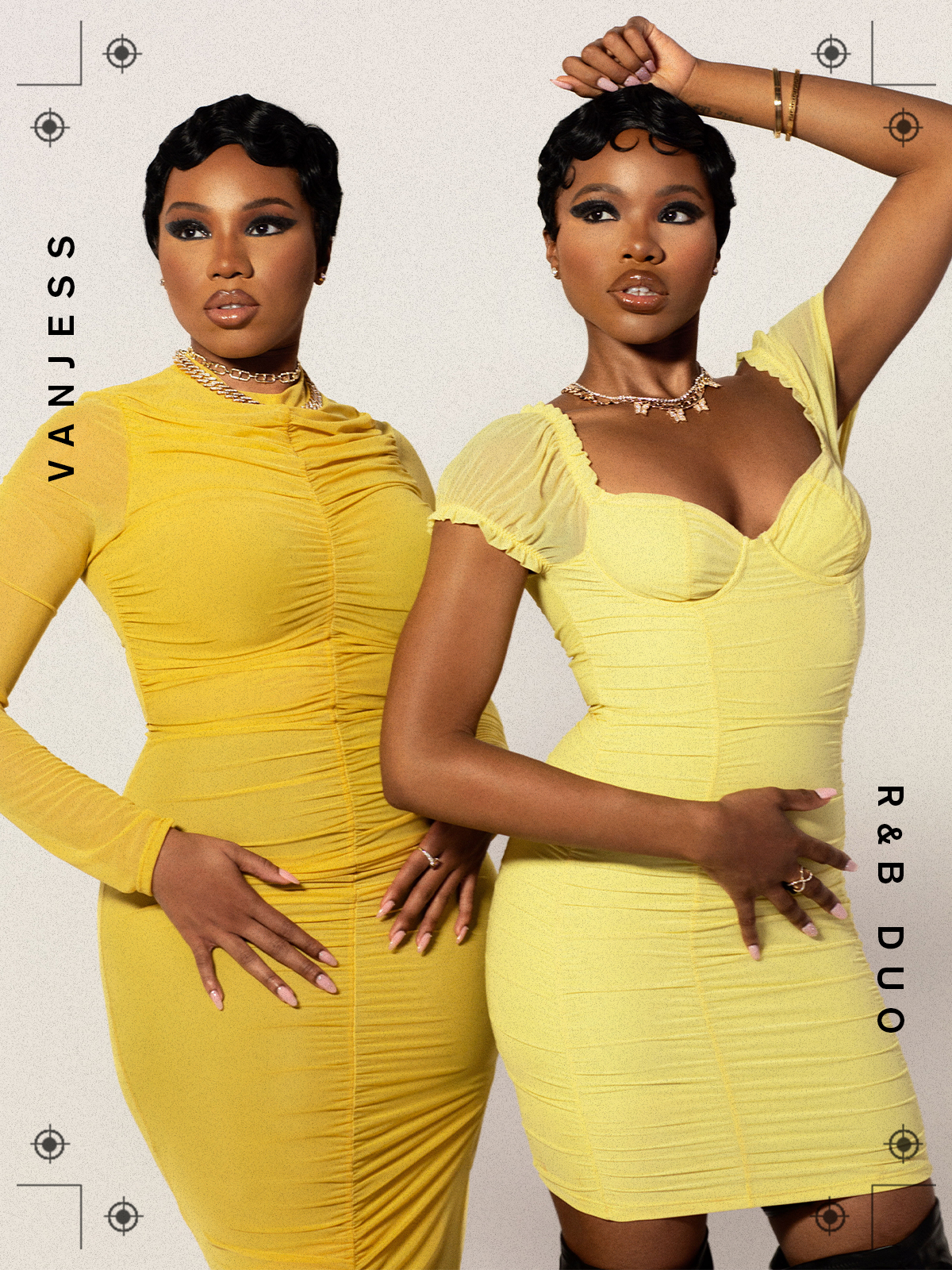
So let's talk about your debut album, Silk Canvas, which came out three years ago in 2018. There was a lot of fanfare about it, a lot of people talking, a lot of critical acclaim. Pitchfork reviewed it and said, "The sisters wield enough magic to make Silk Canvas a success. A sure-footed proclamation of sensuality, musicality, and sisterly love that can hold its own with the best of new wave R&B," which is pretty impressive. What were you trying to say with that debut album?
Jessica Nwokike: The only message with that first project was just this is who we are. It was this is who we are when we freely create. That was really the point where we found our sound. So we just were having fun. We just built something that we listen back to, and it was crazy because we weren't even signed at the time. And we were very low-key, but people were just finding out about us. And it was very wild because we thought to ourselves, Whoa, we're making this level of impact with our music behind the scene. It’s amazing now to have people go back to that project and see the diamond and the roughness of it, and our potential and also just appreciate it for what it was.
Ivana Nwokike: There was definitely an emphasis on being organic; we were meeting new people, having completely new experiences, so it was all super innocent.
As someone who adores music, I always find it so interesting to hear how a song starts versus the final version of it that ends up on an album or an EP. Let's talk specifically about "Come Over" [on new EP, Homegrown], which started as an acoustic song, and you said started years ago?
IN: So we're upstairs in our house in 2015, and I'm just on piano playing, and I have a hook: "I want to come over." It's just on keys. And that was that. Again, this is like pre–Silk Canvas days.
JN: This is when we were just doing everything ourselves. We did it at home. We came up with it at home, and then we went to go record it because we didn't want to waste studio time. [The song] was just very basic: the first hook, the verse, the second chorus, and then the ad-libs. It was just a very basic structure. I don’t know what it was about it, but we just didn’t know how to bring it from that acoustic piano form, and producers who attempted weren’t really hitting it. But then during quarantine, Ivana was like, "Hey, remember that song?” because during this time we kind of got back to our roots a bit with the covers, and Homegrown wasn’t even in the works. We were paused on everything. And at that point, it was like, well, maybe we should just finish this "Come Over" record. So then once we honed in on that, it was like now we have to finish recording it, but nobody's in studios, so what do we do? We recorded it, and we added to the vocal and used some of the original vocals in our home studio. So we were just engineering ourselves back and forth. And then the song came to be, and it was just so cool. "Come Over" was really the spark.
I'm curious if you can share a little bit about the fashion piece of [the EP cover] and sourcing some of those incredible looks. How did you know what would work?
JN: One source I always go to is vintage or thrifting to get unique things because I think for us we always want to showcase something unique—especially for the single artwork. We would reference the fashion in Nollywood movies and try to find some similar silhouettes to get the same vibe. And then it was really just kind of like doing online shopping because you couldn’t go in person. I did Depop a lot, and I remember getting the swimsuit for "High & Dry" because it was the only one available from a specific line from Anthropology—a collab. So then we had to find another in the same fuchsia color. So it was fun, honestly. For the videos, it was very collaborative with our stylists, Ugo Mozie and Daver Campbell. We had been wanting to work with Ugo for years because he is someone who is doing amazing things and working with dope people. But more importantly, he understands the dual identity. He understands being Nigerian and being American and trying to channel that, but also not being performative but being authentic.
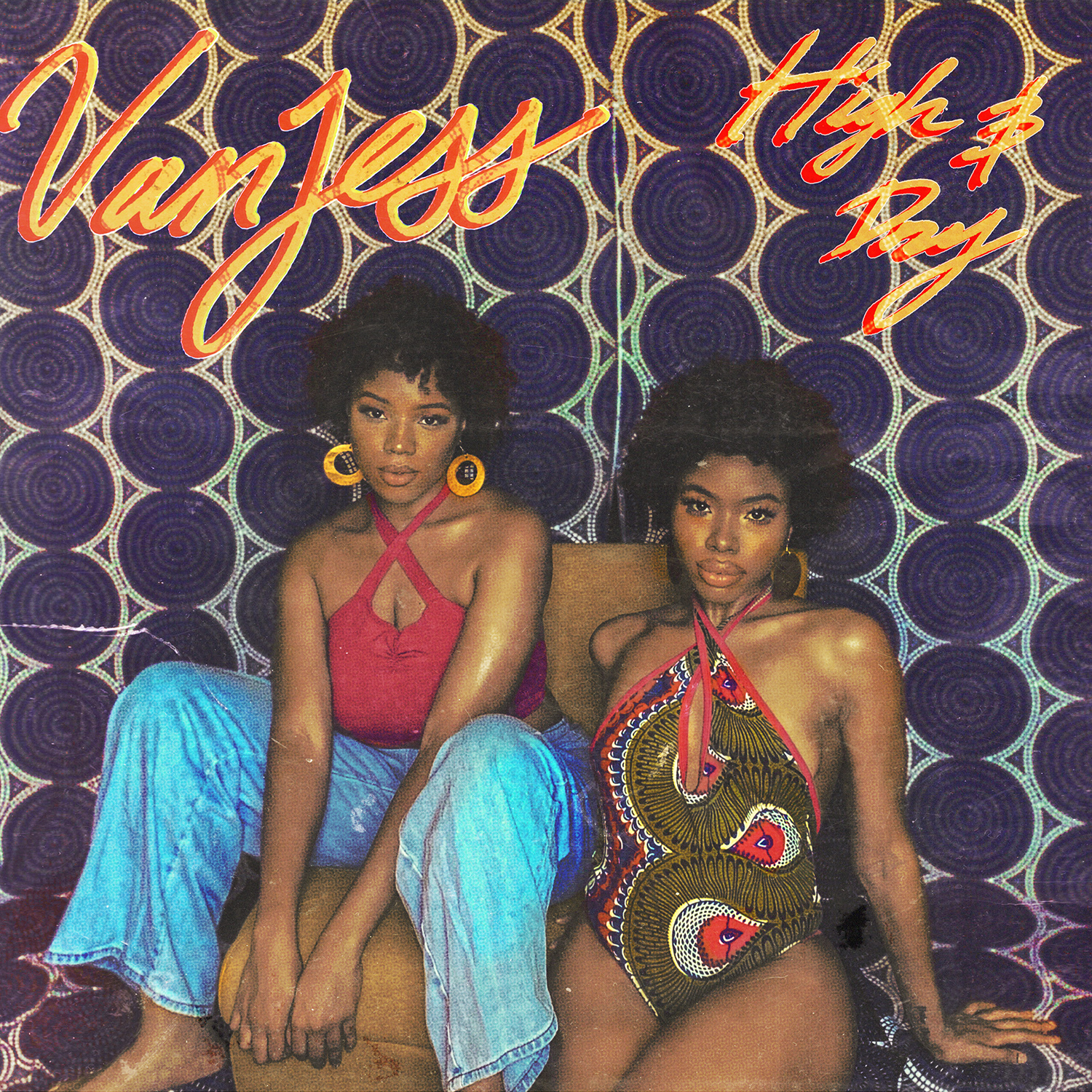
You have worked and collaborated with a lot of really incredible artists. Who do you want to work with next?
JN: I feel like we both would love to work with Brent Faiyaz.
IN: That would be a dream collab.
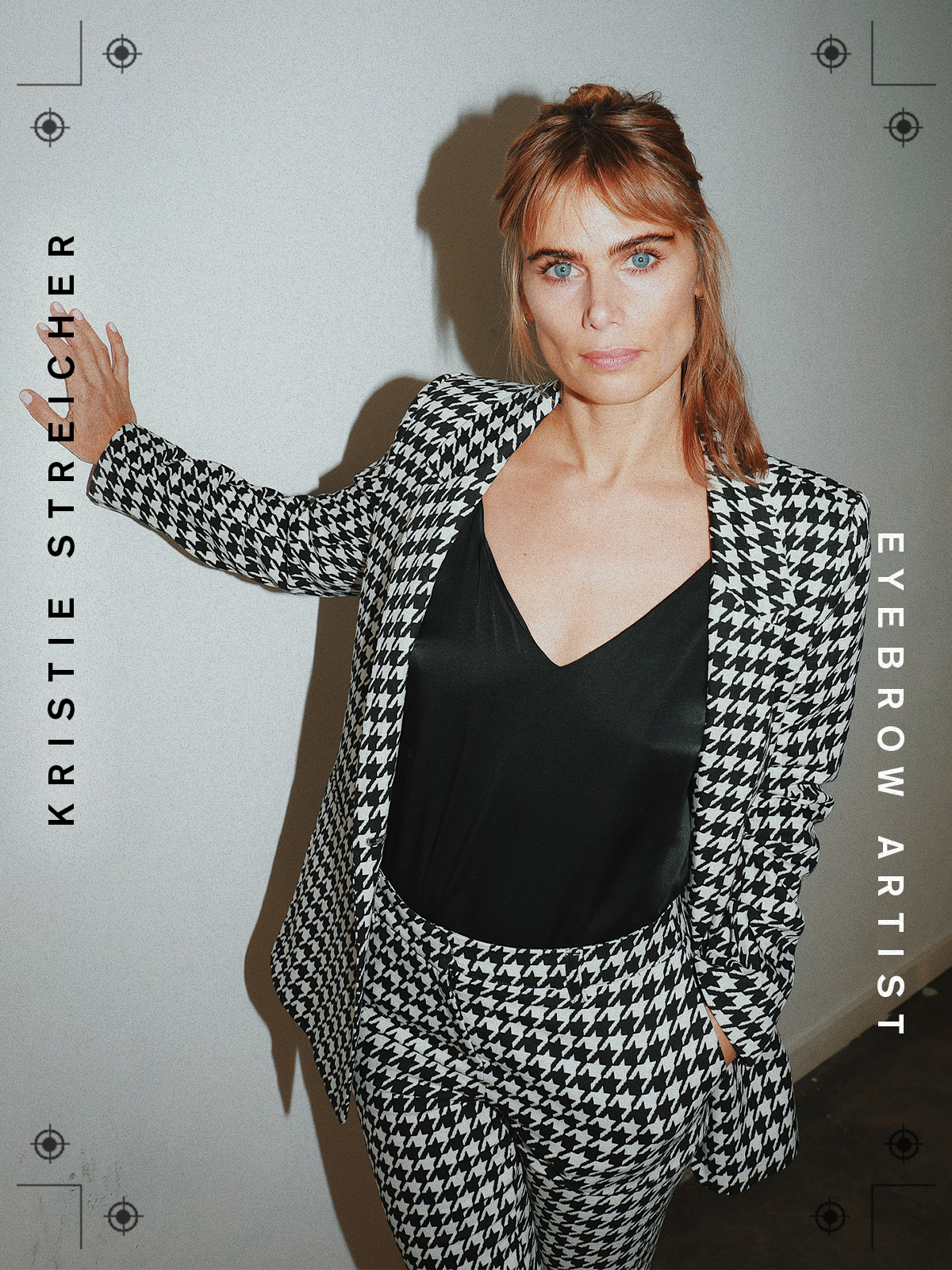
Let's talk about your famed Feathered Brow technique and how it all started. Give me the backstory, please.
It started a long time ago. Right out of high school, I didn't have the option to go to college. My parents were in the middle of a divorce; they were broke. And sadly, I had to just be super independent, and I had to get a job. My older sister Jen had this glamorous job at the Estée Lauder counter selling cosmetics. She wore pantyhose and heels, and I was like, sign me up. So there I was at the Clinique counter wearing my white lab coat. I was basically a dermatologist right out of high school. And I just loved putting myself together every day and engaging with women and talking about beauty and skin. It was honestly a dream job. I love learning about skin and how it worked. It prompted me and inspired me to then go to esthetician school. There, I learned how to do facials and skincare and, of course, waxing—mostly body waxing—and a little bit of the brows. And there started my love for the eyebrows. I remember very quickly thinking there's something that's really unstable about putting lots of hot wax near somebody’s not only eyebrows but eyelashes and hairline and that skin.
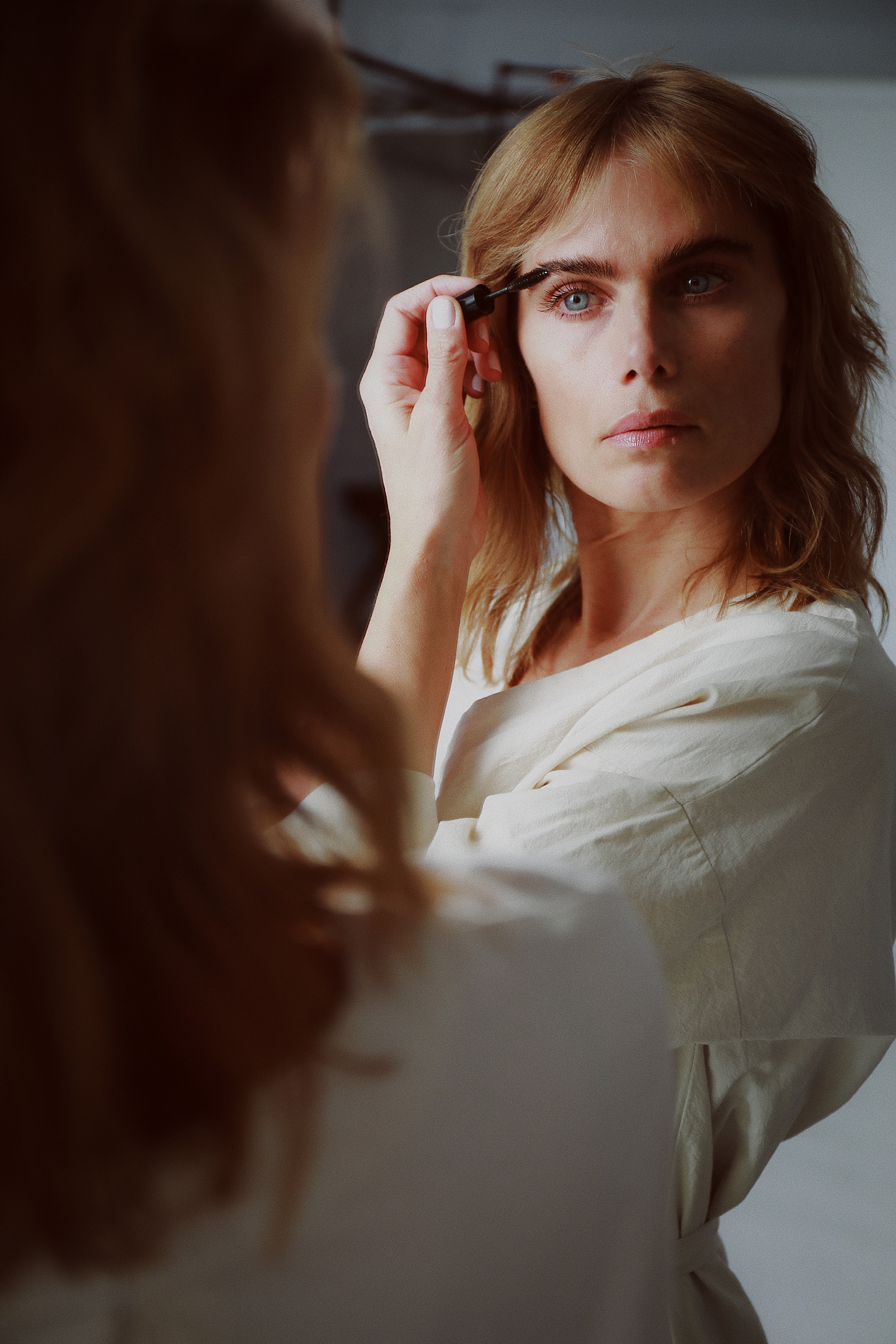
So, there are always trends in the brow world. What are you loving right now? And what are you not as down for or think is just overblown hype?
I tend to ignore the broad trends. I eye-roll when I hear about eyebrow trends. I think when you've been doing what I've been doing for so long, and you realize [eyebrow hair is] not as tenacious as head hair—brow hair is really fragile—and we all know that if you over-tweeze a few, sometimes they don't grow back. So if a trend involves getting rid of too much hair, I'm always like, "Don't do it!” There was that trend where people were taking off the ends of their brows and making this very snatched look. And while it looks very editorial and really cool, in real life, you don't get that beautiful side brow. The ends of your brows are so important. And as we age, those fall out first. If you've ever had any hormonal issues or thyroid issues, they fall out there first. So I'm always like, "Oh, please don't do it.” It's the younger crowd that's doing it, and that's okay because you have to experiment, and I’ve been there. I know that invincible feeling. But for me, I think doing what we do, our trend is hopefully just a forever classic trend of a really beautiful brow that frames your face that doesn't look too contrived or done.
How would you recommend people find someone like you [to do their brows] if they don't live in Los Angeles? How do you know to trust someone and to trust their work? What should they look for?
I feel like I get asked this a lot. I always tell people to look for brows that you admire and look for people's brows that you love, and ask where they get them done. Some people like to take their brows into their own hands because they are so scared because it takes one round of tweezing for them to be gone. And so some people really like to try and do them at home.
There are all kinds of tips. I actually developed a whole virtual appointment program for people who want to do them at home. I think you can always feel free to ask someone [whose brows you admire], "Do you just tweeze?" I have realized that people in the service industry really want to make sure that they're giving their money's worth to people. And they think that means really overdoing it or really changing something, and that's not necessarily always the case. So be really articulate and say what you want, and don't be afraid to hold the mirror while they're doing it.
What are your top three brow products of all time?
I love a clear, strong-hold gel that really holds your brows. The one I'm using right now is actually from my lab sample of my products that I'm coming out with that I can't wait to share with you. I love a tinted brow gel. I've been using the Surratt one and the Surratt pencil to fill them in if I get a little hole or something. And I love growth serum to keep them nice and fluffy.
These interviews have been edited and condensed for clarity.
Up next: Rachel Bilson on The O.C. Fashion and Shani Darden on the Best Skincare Regimen
As a former New Yorker, now a “Miamian,” Adrienne Faurote is a fashion, beauty, and wellness writer. With over a decade in the industry, Faurote has held positions at esteemed publications such as Marie Claire US, becoming an authoritative voice in the fashion and beauty world.
